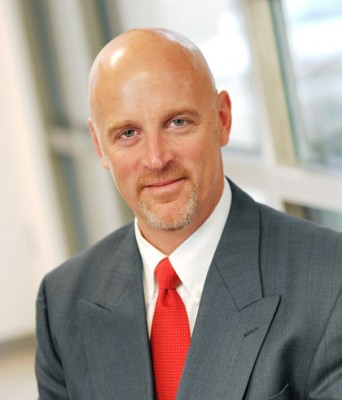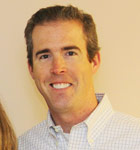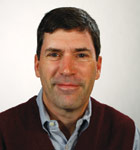
Bayer Heritage Federal Credit Union is well known in the 14 counties and five states it serves, partly because it’s a very community-minded organization and partly because the New Martinsville, West Virginia-based organization is run by the community itself. As a credit union, Bayer Heritage is a cooperative owned by its members. As an organization managed by the people for the people, it’s got some latitude to do things that a typical bank might not do.
With an all-volunteer board of directors and no shareholders to report to, “it allows us to be more service-oriented than profit motivated,” CEO Robert Burrow says. “We offer a lot of services that some of the smaller community banks can’t or won’t.”
For instance, “I’ve got staff that will stay if someone is running late,” he says. “They’ll bring loan docs to the house if someone is unable to get out of the house. My people will go to the nth degree to serve, and that’s what we want to be known for. Here, you’re not just a transaction or a number. We feel like we have to be more than that, and all our people are that way. Banks can’t do that, and that’s what makes us different.”
As a result, the credit union offers things for free simply to help its members. In fact, every year, Bayer Heritage offers a seminar for members who have kids going to college, bringing in financial-aid experts who can help with the process of filling out FAFSA forms and help determine how much money they will need and what kind of payment instruments their kids will need. “We don’t get anything other than good will from that, but these are the kinds of things we do,” Burrow says.
The company was founded in 1957 as Mobay Employees’ Federal Credit Union for Mobay Corp. workers, later adding employees’ families. In 1996, its sponsor changed to pharmaceutical company Bayer, headquartered in nearby Pittsburgh. In 2001, the National Credit Union Administration allowed credit unions to reach out to underserved communities, and that’s when Bayer Heritage expanded across West Virginia and into Ohio and South Carolina.
One of its competitive differentiators is that its new and used auto-loan rates are the same. “We feel that the risk is with the person, and if you’re a good risk, then your interest rate should not be based on whether it’s new or used [car],” Burrow notes. “I think we have a bigger slice of that used-car market as a result. It’s the second-largest proportion of our total loans—slightly under real-estate loans.”
TOP 3 INITIATIVES
1. Expand and build new offices in the counties Bayer Heritage currently serve
2. Add offices on the Ohio side of the Ohio river for members in that state who are currently being served by a West Virginia office
3. Increase the number of services it sells to each customer
Construction lending is another high point for the company, as it’s an area that Burrow says others have been backing away from since the recession. “People are still building homes despite this economy, and we’re not bashful about it,” Burrow says. “We’re up-front in saying we’d like to fund those loans. My competitors are not advertising that, and they don’t really want you to ask—we do.”
Another competitive advantage: staying up to date with technology, such as mobile apps. “Our members are all over the country,” Burrow explains. “We wouldn’t be able to keep up with them without technology, so we’re constantly adding ways to make it easy for them to use us, regardless of where they might be living.”
A new service, Deposit Now, allows members who don’t live near a branch to make deposits in a local bank or scan their checks from their home computer. They receive immediate credit but have to deliver checks to the credit union within five to seven days. Customers can also access no-fee ATMs and iPhone and Android apps that allow them to make transfers and other inquiries. Members can even apply for loans online or via phone. “Technology helps us do more without incurring too much labor cost,” Burrow says.

Bayer Heritage is also a very community-minded organization, volunteering at the Children’s Miracle Network hospital in Morgantown, West Virginia, and teaching local high-school kids money management. It’s involved in Relay for Life and Toys for Tots. It has also worked with other credit unions to build homes for returning disabled troops, and contributes to a joint credit-union foundation that supports other credit unions and disaster-stricken communities.
Bayer Heritage is currently building a new office in Goose Creek, South Carolina. Over the next three to five years, Burrow would like to see the cooperative expand across the counties it currently serves and increase the number of services per member. The credit union’s philosophy is what keeps it moving forward. “No matter how successful we become, how many new services we offer, how much technology we bring out, new buildings we build, we know that the only reason we’re here is because our members see value in us,” Burrow says. “We want them to know that we don’t take them for granted. If they lose trust in us, we’re done. We never lose sight of that.”

